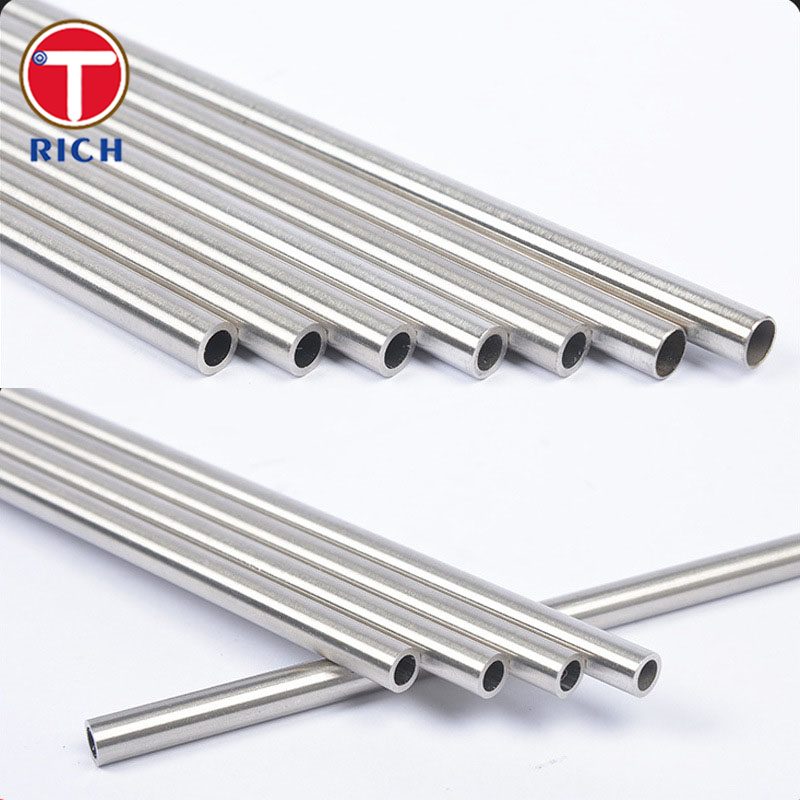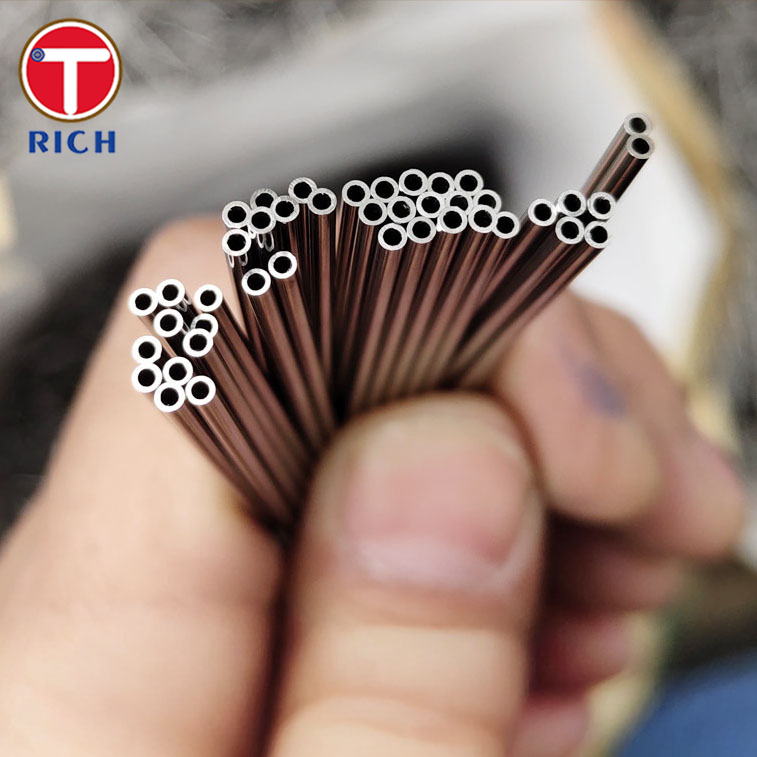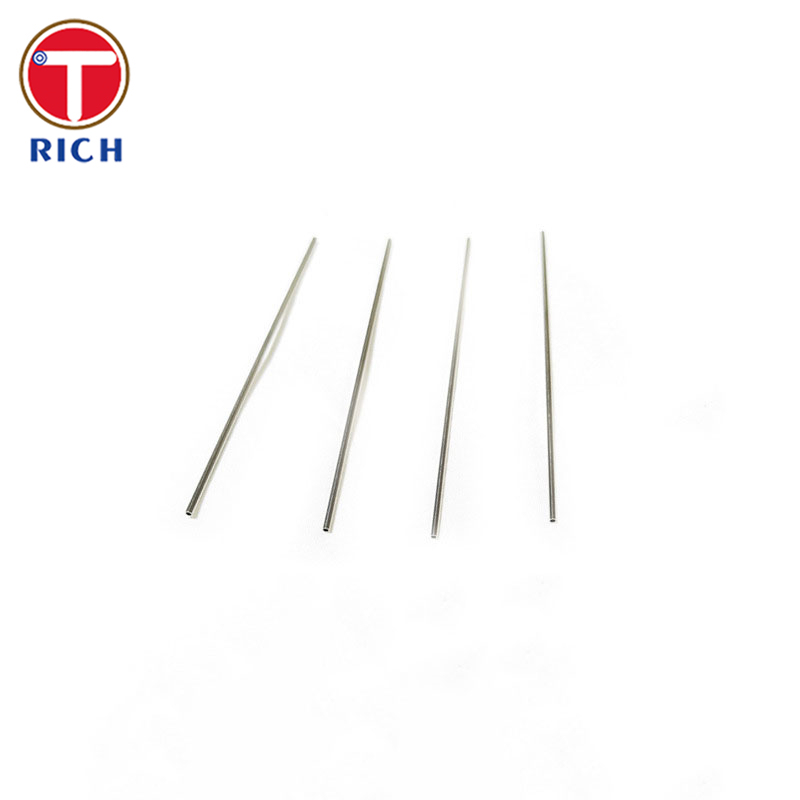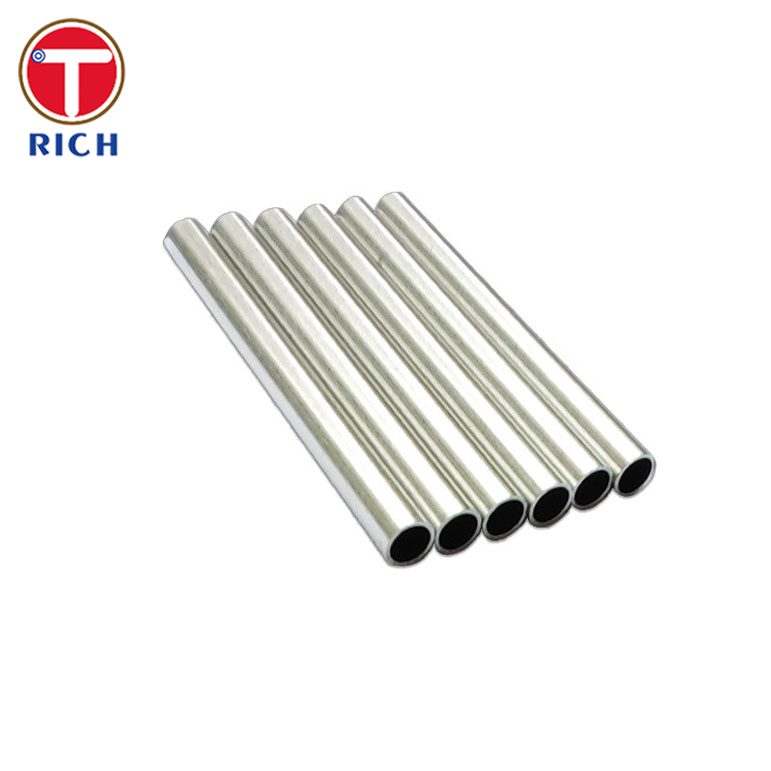
Stainless Steel Capillary Tube — Small-Diameter Medical-Grade Stainless Steel Pipe
Material
This product is a stainless steel capillary tube (also called a micro or small-diameter stainless steel pipe), engineered for medical and precision fluidic systems. It provides a hollow cylindrical conduit with very small internal diameters (ID) and tight dimensional tolerances, suitable for transporting small volumes of fluid or gas under controlled conditions. The tubes are often made from corrosion-resistant stainless steel alloys (commonly austenitic grades) and are processed (cold drawing, annealing, polishing) to ensure excellent surface finish, dimensional precision, and biocompatibility.
Specification
Typical specification ranges (may vary by manufacturer) are:
| Parameter |
Typical Range / Value |
| Outer Diameter (OD) |
0.30 mm to 12.70 mm |
| Inner Diameter (ID) |
~0.10 mm to ~8.00 mm |
| Wall Thickness |
0.05 mm to ~1.50 mm |
| Length |
Up to ~30 m continuous (or cut to length) |
| Dimensional Tolerance |
±0.02 mm to ±0.05 mm (outer), ±0.02 mm to ±0.04 mm (inner) |
| Surface Treatment |
Bright annealed, electropolished, passivated |
| Tube Type |
Seamless or welded & cold-drawn |
These ranges represent typical manufacturing capabilities; customers may specify tighter tolerances or alternate ranges.
Chemical Composition
Below is a comparison table of five commonly used stainless steel grades for capillary tubes, showing typical chemical composition (in weight %) as per standard references and manufacturer data:
| Grade |
C (max) |
Mn (max) |
Si (max) |
Cr (wt %) |
Ni (wt %) |
Mo (wt %) |
| 304 / 304L |
0.08 (304), 0.03 (304L) |
2.00 |
0.75 |
18.0 – 20.0 |
8.0 – 11.0 |
– |
| 316 / 316L |
0.08 (316), 0.035 (316L) |
2.00 |
0.75 |
16.0 – 18.0 |
10.0 – 14.0 |
2.0 – 3.0 |
| 321 |
0.08 |
2.00 |
0.75 |
17.0 – 19.0 |
9.0 – 12.0 |
– |
| 347 |
~0.08 |
2.00 |
0.75 |
~17.0 – 19.0 |
~9.0 – 12.0 |
– |
| 17-4 PH (precipitation-hardened) |
0.07 |
~1.00 |
1.00 |
15.5 – 17.5 |
3.0 – 5.0 |
– |
Mechanical Properties
| Grade |
Tensile Strength (MPa) |
0.2% Yield Strength (MPa) |
Elongation (%) |
Hardness (HRB or equivalent) |
| 304 / 304L |
≥ 515 MPa |
≥ 205 MPa |
≥ 40% |
≤ 92 HRB |
| 316 / 316L |
≥ 515 MPa |
≥ 205 MPa |
≥ 40% |
≤ 95 HRB |
| 321 |
~515 MPa |
~205 MPa |
~40% |
~95 HRB |
| 347 |
Similar to 321 in many conditions |
– |
– |
– |
| 17-4 PH (aged) |
~930–1,100 MPa (after aging) |
~850–1,000 MPa |
~8 – 15% (depending on age) |
~30–39 HRC (converted) |
These mechanical properties depend heavily on heat treatment, cold working, and tempering. For small-diameter capillary tubes, the manufacturing process may involve cold drawing and annealing to tailor the strength/ductility balance.
Key Features
-
Excellent corrosion resistance, especially against bodily fluids, saline, and disinfectants — particularly when using 316L or low-carbon grades.
-
High purity, cleanliness, and passivation to meet medical device hygiene and biocompatibility standards.
-
Very fine dimensional tolerances and smooth internal surfaces to minimize flow disturbance, pressure drop, or contamination risks.
-
Capability of tight bendability and coiling, if required, while maintaining integrity.
-
Good mechanical strength even in small wall thicknesses.
-
Compatibility with non-destructive testing (ultrasonic, eddy current) for defect detection.
-
Ability to handle moderate pressure differentials depending on geometry and grade.
Applicable Standards
Depending on geography and medical regulations, the following standards may apply to stainless steel capillary tubes (especially for medical or precision applications):
| Standard Type |
Examples / Relevance |
| ASTM / ASME |
ASTM A269 (seamless and welded austenitic stainless steel tubing); ASTM A632 (small-diameter, precision stainless tubing); ASTM A213; ASTM A312; ASTM E213, E209 for nondestructive testing |
| EN / ISO |
EN 10216-5 (stainless steel tubes); ISO 1127 (tubes — dimensions & tolerances) |
| Medical / Implant |
ASTM F138 / F139 (for 316LVM, vacuum-melted medical-grade stainless steel) |
| National (e.g., China) |
GB / GB-T standards like GB/T 13296 (seamless stainless steel tubes); GB/T 14976 (fluid conveying capillary) |
| JIS (Japan) |
JIS G 3448 (precision stainless steel capillary tubes) |
| GOST (Russia / CIS) |
Local stainless tube standards may apply depending on region |
When certifying for medical devices, also consider biocompatibility, leachables, sterilization compatibility, and regulatory compliance (e.g. ISO 10993, USP class VI, etc.).
Application Fields & Use Cases
General Application Areas
This kind of small-diameter stainless steel capillary tube is used in medical, laboratory, analytical, microfluidics, instrumentation, and high-precision equipment where fluid or gas transport in minimal volume is needed.
Specific Use Cases in Medical & Related Fields
-
Catheters / Guide wires: as internal or structural tubing segments for drug delivery, sensors, or guide systems.
-
Syringe / Infusion systems: micro-tubes for accurate dosing, connecting valves, or filters.
-
Needles / Micro-needle assemblies: used in needle shafts or internal fluid pathways.
-
Medical instrumentation: fluidic or gas channels inside diagnostic devices, analyzers, blood analyzers.
-
Implantable devices: in some cases (with appropriate grades and treatment), as part of implantable sensors or catheters.
-
Analytical / laboratory instrumentation: connecting high-pressure pumps, chromatography systems, mass spectrometers, microfluidic modules.
-
Sensors / probes: as protective shells or conduits for pressure, temperature, or chemical sensors in a medical environment.










Q: Are you trading company or manufacturer ?
A: manufacturer,also can do trading.
Q: How long is your delivery time?
A: Generally speaking,it is 10-15 days if the goods are in stock,or it is 30-40 days if the goods are not in stock,
it is according to quantity.
Q: Do you provide samples? is it free or extra ?
A: Yes, we could offer the sample for free charge but need pay the cost of freight.
Q: What is your terms of payment ?
A: Payment<=2000USD, 100% in advance. Payment>=2000USD, 30% T/T in advance ,balance before shippment.
If you have another question, pls feel free to contact with me.

 Your message must be between 20-3,000 characters!
Your message must be between 20-3,000 characters! Please check your E-mail!
Please check your E-mail!  Your message must be between 20-3,000 characters!
Your message must be between 20-3,000 characters! Please check your E-mail!
Please check your E-mail! 




